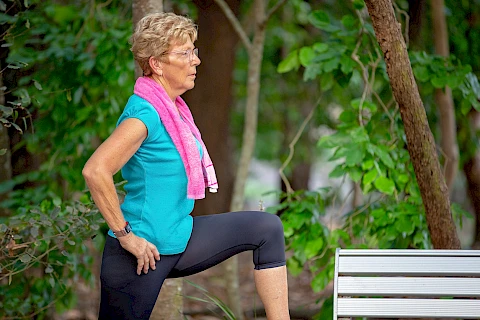
Osteoporosis is a common condition that affects seniors, causing weaker bones and an increased risk of fractures. It is often referred to as a "silent disease" because it presents no obvious symptoms, making early awareness and proactive bone health management crucial. Understanding the causes, risk factors, and steps to strengthen bones can empower seniors to take control of their health and effectively manage the condition.
What Is Osteoporosis?
Osteoporosis is a disease that causes bones to become brittle and fragile due to a loss of density. Healthy bones resemble a honeycomb in their structure. With osteoporosis, these spaces within the bone grow larger, reducing strength and increasing the risk of fractures. These breaks frequently occur in the hip, spine, and wrist and can significantly impact mobility and quality of life in older adults.
Risk Factors for Osteoporosis
Several factors might increase the risk of osteoporosis. Age is a contributing factor as bone loss tends to outpace bone formation as we grow older, naturally reducing density. A family history of osteoporosis can also mean a higher risk. Lifestyle choices, like a diet low in calcium, lack of physical activity, smoking, and excessive alcohol, can weaken bones. Medical conditions, like rheumatoid arthritis or long-term use of steroids, can also contribute to bone thinning.
Prevention Strategies
There are several steps you can take to help prevent osteoporosis. Here are a few things you can do:
- Get Regular Screenings: Early detection through regular bone density screenings is vital, especially for those with risk factors. Screenings can identify potential risks and allow for lifestyle adjustments that can significantly reduce the risk of developing osteoporosis.
- Eat Right: Diet and nutrition are critical to maintaining bone health. Ensure adequate intake of calcium and vitamin D, as these nutrients are essential in maintaining bone density. Foods like dairy products, leafy greens, and fortified cereals are excellent sources of these vital nutrients.
- Stay Active: Regular physical activity, after consultation with healthcare providers, can help maintain bone strength and balance. Weight-bearing exercises, like walking or light strength training, support bone health and also improve overall fitness and well-being. Remember to consult your doctor before starting a new exercise routine.
- Fall Prevention — Ensure your living environment is safe by removing loose rugs, providing adequate lighting, and using assistive devices if necessary. These simple measures can significantly reduce the risk of falls and potential fractures.
Treatment Options
Several treatments are available for those diagnosed with osteoporosis. Always consult healthcare professionals to determine the best approach. Treatment can include medications such as bisphosphonates to help slow bone loss or hormone-related therapy for certain individuals.
Supplements can also play a role in supporting bone health. Calcium and vitamin D supplements can be beneficial when dietary intake is insufficient. However, it is essential to discuss any supplement regimen with a healthcare provider to ensure it is appropriate for your individual needs.
Stay Bone Healthy With Tailored In-Home Care From Senior Helpers
Osteoporosis may be common, but a proactive approach to bone health can make a difference. If you need help planning and prepping bone-healthy meals or need assistance with transportation and appointments for those bone doctor visits, Senior Helpers Des Plaines is here for you. We personalized our senior in-home care solutions to meet your unique preferences and needs. Contact us today to learn more about our services in Chicago, Des Plaines, and Lake Forest!